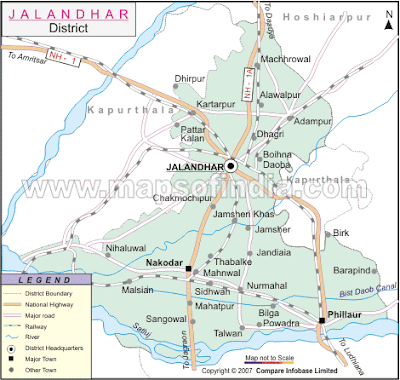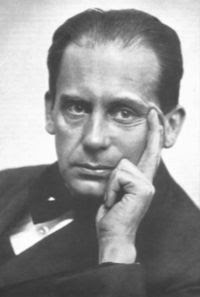
Sultanpur Lodhi - Kapurthala District, Punjab India
Sultanpur Lodhi - Located in Kapurthala District Punjab, India
Sultanpur Lodhi is an old town in Kapurthala district of the Punjab. It is located about 35 kms south-east of Amritsar and covers an area of about 10 square km. It is situated on the left bank of a rivulet, called Kali Bein about 10 kms above the confluence of Beas and Sutlej.
Sultanpur Lodhi & Sikhism
First Sikh Guru, Guru Nanak Dev Ji had spent 14 years of his life in Sultanpur Lodhi before setting out on his famous travels (Udasis) to deliver his message around the world. In this town lived his sister, Bibi Nanaki, and her husband, Bhai Jai Ram, an official in the service of Nawab Daulat Khan Lodhi, a feudatory chief, who became governor of the Province of Lahore during the first quarter of the sixteenth century.
At the instance of Jai Ram, Guru Nanak took up employment in the Nawab's provision stores. During that time there grew up a sangat, holy fellowship of disciples, which so prospered that Bhai Gurdas in his Varan (XI.21), called Sultanpur the "treasure of God's adoration." Sultanpur Lodhi has several gurdwaras commemorating events connected with the life of Guru Nanak.
Gurdwara Ber Sahib
 Gurdwara Ber Sahib, Sultanpur Lodhi (Picture)
Gurdwara Ber Sahib, Sultanpur Lodhi (Picture)
Gurdwara Ber Sahib, the principal shrine at Sultanpur, is situated on the bank of the rivulet Kali Beiri, half a kilometre to the west of the old town. Guru Nanak performed his morning ablutions in the Bein and then sat under a ber (Zizyphus jujuba) tree to meditate. Guru Ji meditated for 14 years, nine months and 13 days here. It was during one such ablution that Guru Nanak had what is described, in the Janam Sakhis, as a direct communion with the Divine.
As the Janam Sakhis narrate the details, Guru Nanak one morning disappeared into the stream and was not seen for two days. When he reappeared at a spot, 2 km upstream, now known as Sant Ghat, the first words he uttered were, "There is no Hindu, there is no Musalman." Guru Nanak was now ready to embark on his long journeys. Gurdwara Ber Sahib is built by the side of an old ber tree which is believed to be the one under which Guru Nanak would sit in meditation. The present building of Gurdwara Ber Sahib was raised by Maharaja Jagatjit Singh of Kapurthala. The cornerstone was laid by Bhai Arjan Singh of Bagarian on 25 February 1937, and the Gurdwara was on completion dedicated by Lieutenant General Maharaja Yadavinder Singh of Patiala on 26 January 1941. Standing on a high plinth and entered through a portico, supported by octagonal columns, and a small entrance gallery is the high ceilinged, marble floored hall.
At the far end, marked off by a high archway decorated with floral designs in stucco, is the sanctum sanctorum, where the Guru Granth Sahib is seated on a whitemarble palakJ or canopied throne. Besides the daily services and observance of important Sikh anniversaries, a largely attended fair takes place each November to mark the birth anniversary of Guru Nanak.
Gurdwara Hatt Sahib
Gurdwara Hatt Sahib, south of the old fortresslike serai, marks the spot where Guru Nanak worked as the custodian of Nawab Daulat Khan's provision stores. The building comprises a hall, with a square sanctum in its middle. Above the sanctum is a square room with wide arched coping and a lotus dome topped by a goldplated finial. Thirteen polished stones of different sizes, believed to be the weights used by Guru Nanak, are on display in a glass cabinet.
Gurdwara Antaryatma Sahib
Gurdwara Antaryatma Sahib, a flatroofed rectangular room marks the site of a mosque to which Nawab Daulat Khan had invited Guru Nanak to participate in namaz or Muslim prayer. Divining how the Nawab and the Kadi were only outwardly going through the ritual with their minds engrossed in worldly thoughts, Guru Nanak stood aside. When the Nawab asked him why he did not join the prayer, he told them exactly what he and the Kadi had been thinking of as they prayed. Both, as say the Janam Sakhis, fell at the Guru's feet. Nothing remains of the mosque now except the entrance gate to the compound.
Gurdwara Guru Ka Bagh
Gurdwara Guru Ka Bagh, a flatroofed hall in the interior of the town marks the premises where Guru Nanak resided with his wife and children during his stay at Sultanpur. The Guru Granth Sahib is seated in the hall on a rectangular platform. A narrow well, now covered, is a relic of the days of yore.
Kothari Sahib
Kothari Sahib, a narrow low roofed cell in a small house in Mohalla Vaddian, is where Guru Nanak was detained while his accounts were being checked following a false complaint lodged by his detractors. In one of the two small rooms close by is seated the Guru Granth Sahib.
Gurdwara Sant Ghat
Gurdwara Sant Ghat, on the bank of the Bein, is where Guru Nanak reemerged on the third day of his disappearance into the river near the site of Gurdwara Ber Sahib.
Gurdwara Bebe Nanaki Ji
Gurdwara Bebe Nanaki Ji, constructed in 1970's, honours the memory of Bebe Nanaki, elder sister of Guru Nanak. The actual house, a threestoreyed old building where Bebe Nanaki is believed to have lived with her husband, Jai Ram, is inside the old town in Mohalla Chhimbian. But the premises being in private possession, a public monument (cornerstone, laid on 13 November 1970) was raised in the form of a gurdwara by Bebe Nanaki Istri Satsang Charitable Trust under the chairmanship of Bibi Balvant Kaur of Birmingham (United Kingdom). The Gurdwara Bebe Nanaki JI comprises a central hall, with the Guru Granth Sahib seated in a white marble palaki at the far end. The Guru Granth Sahib is also seated in a small sideroom symbolizing Bebe Nanaki's own lodging. Over the sanctum, above the hall roof, is a square domed room with arched copings. Bulbous domes adorn the corners of the hall roof.
Gurdwara Sehra Sahib
Gurdwara Sehra Sahib is dedicated to Guru Arjan who passed through Sultanpur in 1604 on his way to Dalla for the marriage of his son, Har Gobind, the future Guru Hargobind (revered for his concept of miri and piri). According to tradition, the marriage party stayed overnight at this place and the sehra, or ceremonial wreath was fastened round the bridegroom's head here. The Gurdwara, within a brickpaved walled compound, is an octagonal domed room in which the Guru Granth Sahib is seated.
All these shrines at Sultanpur Lodhi with the exception of Gurdwara Bebe Nanaki JI, which is under the management of the Trust, are administered by the Shiromani Gurdwara Parbandhak Committee through a local committee.
Courtesy: SikhiWiki.org
See Also
Sultanpur Lodhi External Links (Wikipedia/Official Website)
|











